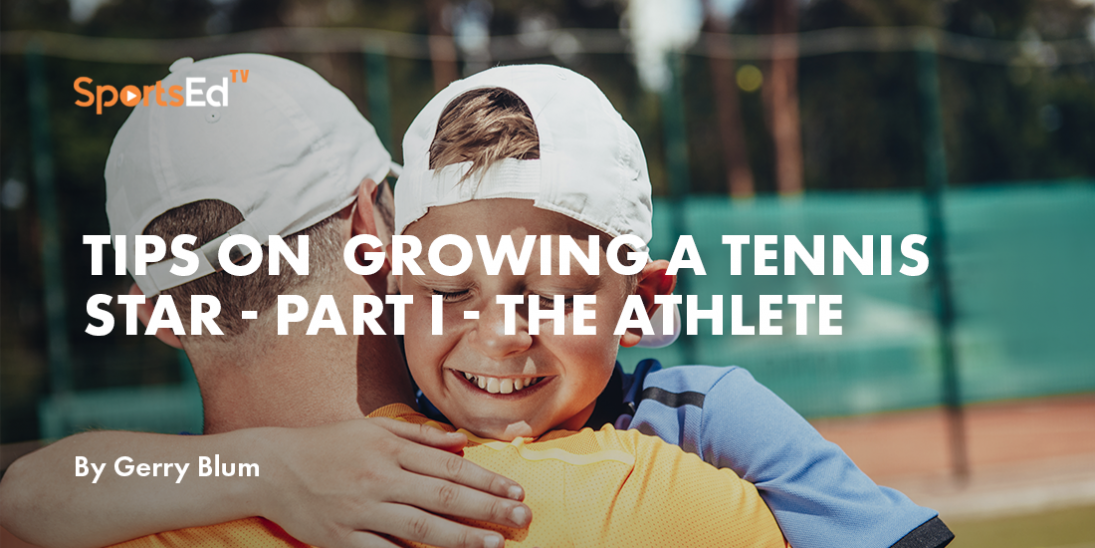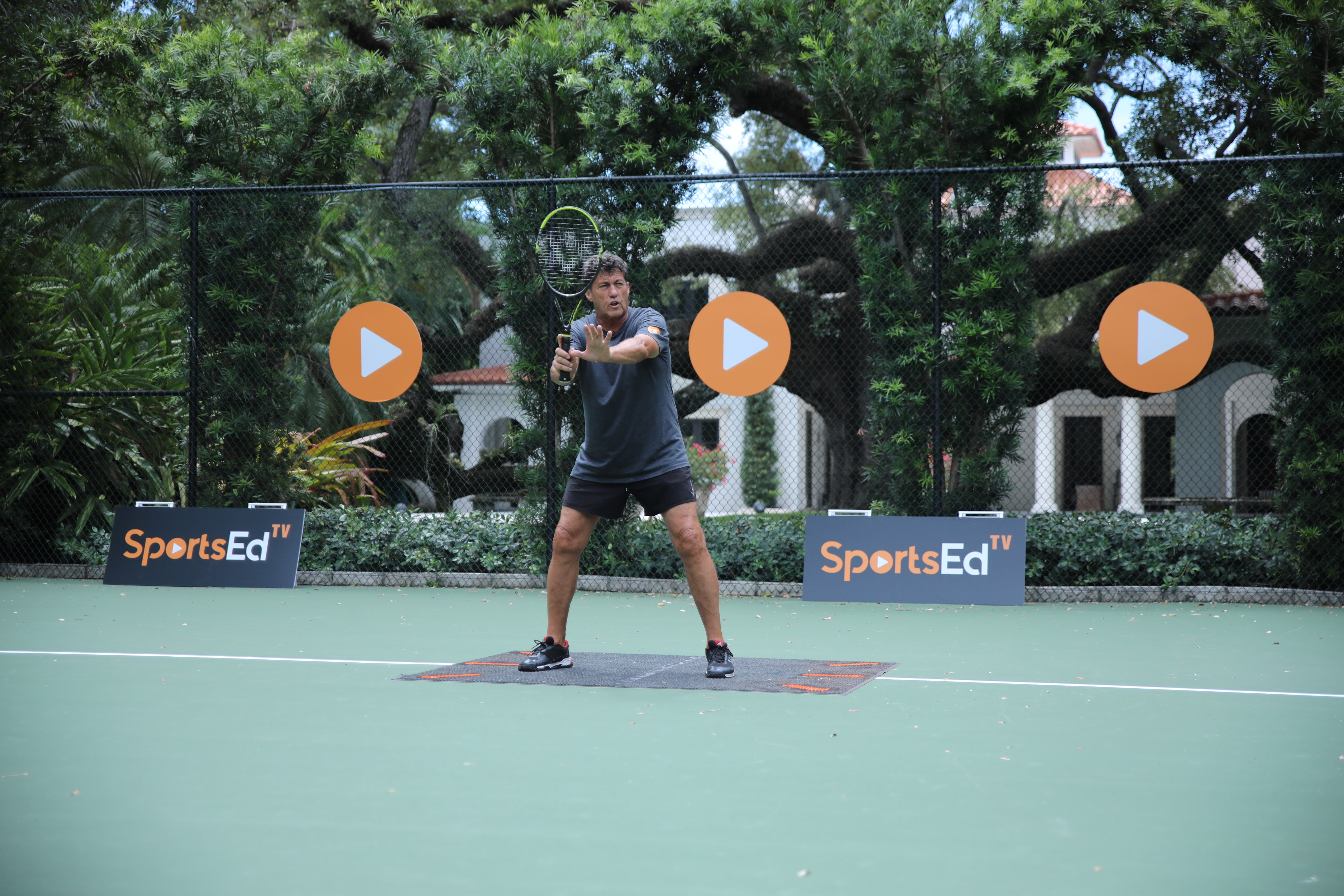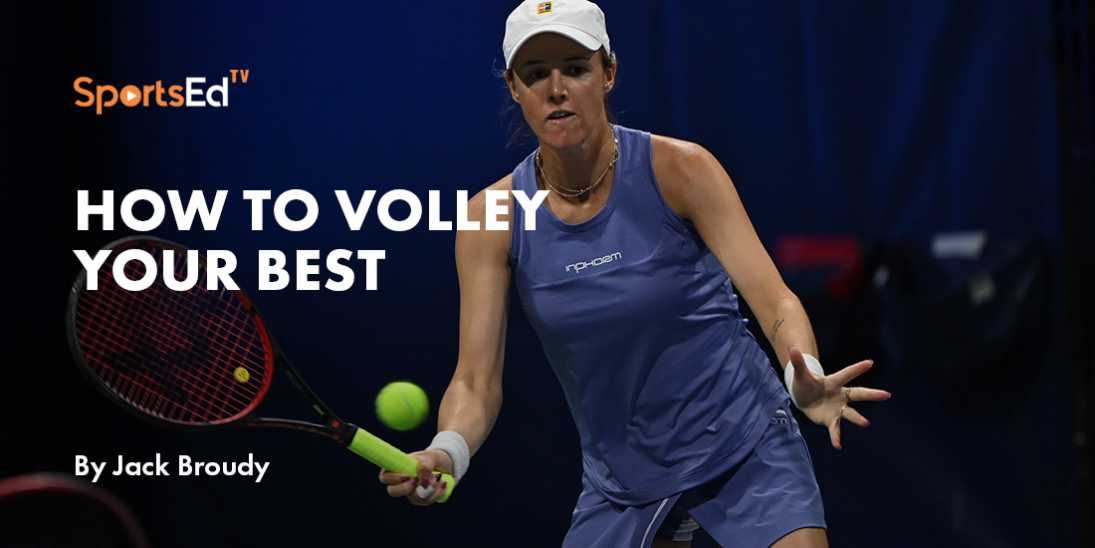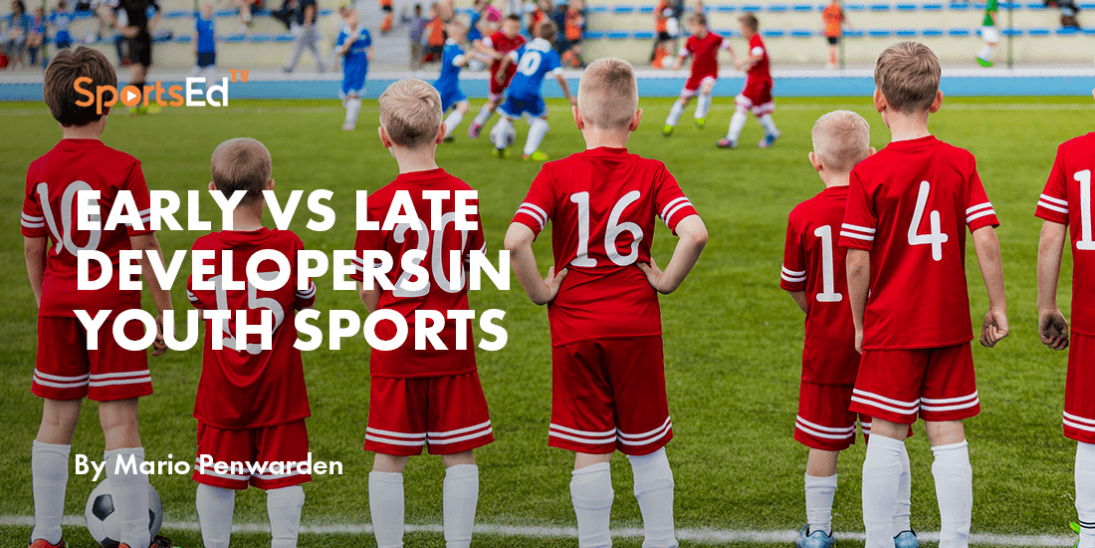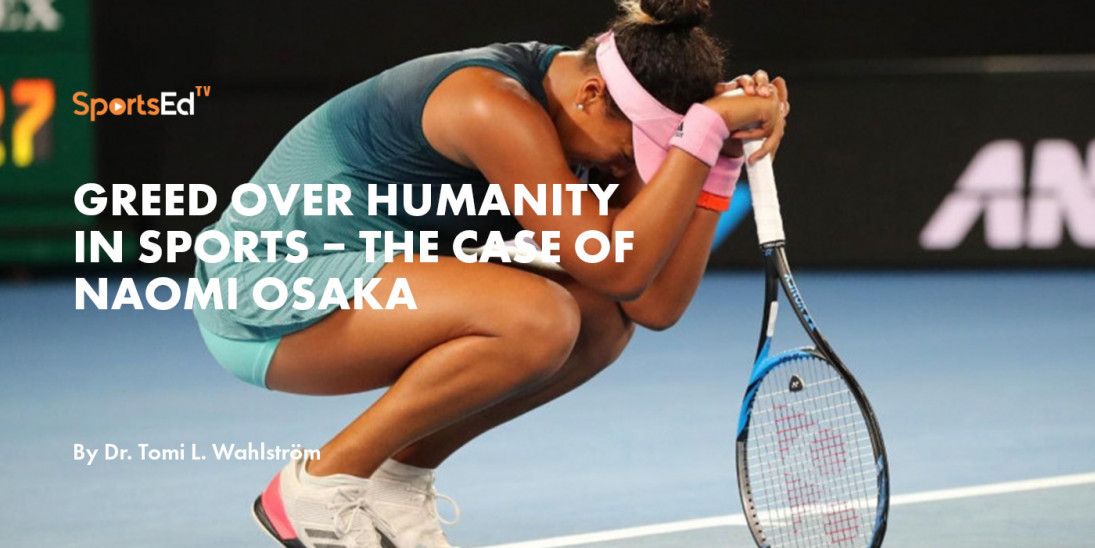Tennis
Welcome and thanks for visiting...

Jeff Coetzee Talks To SportsEdTV - Playing and Coaching Career
Born April 25, 1977, grew up in the copper mining town of Okiep in North Western Cape where he started his tennis career at the age of 9. Started playing on a make-shift gravel court in his home's backyard in Namaqualand using orange bags as the net. Former No. 1 junior player in South Africa and Top 30 in singles, Top 20 in doubles in world junior rankings. Jeff reached Australian Open SF in 2003 and 2008 and played Davis Cup for his country.
Jeff is now a doubles specialist, return game, quickness, and mental aspect. Currently coaching the No.1 ranked team in the world in doubles, Robert Farah and Juan Sebastian Cabal.
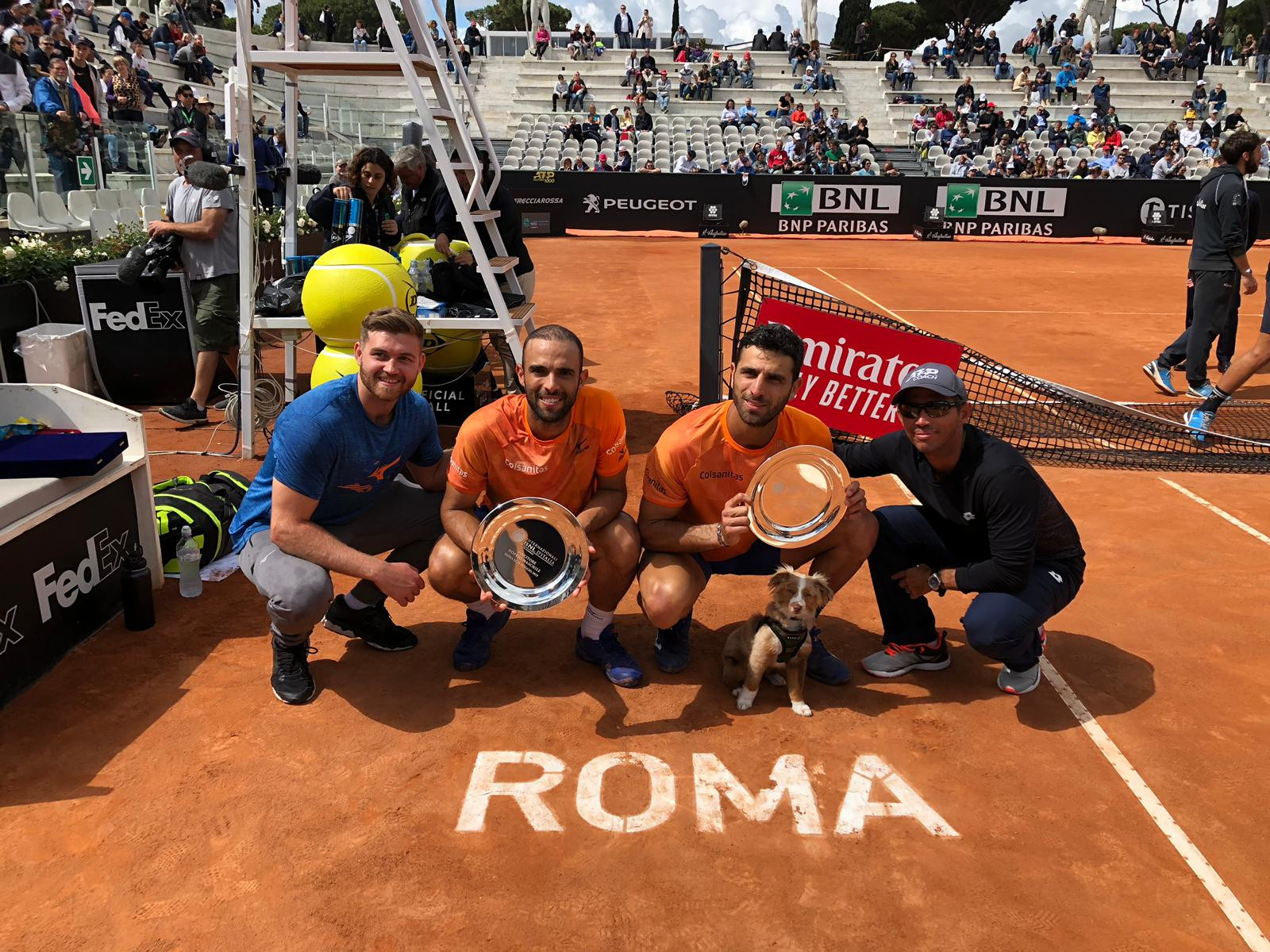
Left to Right: Jason Mathiou, Juan Sebastian Cabal, Robert Farah, Jeff Coetzee
SportsEdTV: Jeff Coetzee. South African tennis star ranked 12ve in the world. ATP Tour coach of the year, coaching the No.1 doubles team in the world, Robert Farah and Juan Sebastian Cabal, one heck of a year. Jeff, when you got the award or the call, that you are the ATP coach of the year. How did that happen and how did you feel at that moment?
Jeff: I think it's one of those things where one just kind of goes at it and you just go do your job. I feel it's not a job per se, it's a passion. I like what I'm doing, and some people say it's very lucky, but I just say, you know, I grew up with this wonderful game and so I don't think it was something like, OK, wow, unbelievable. You get recognition for something you do, but for me, at the end of the day, I just felt like I was just going on about trying to do the best job possible if you want to call it a job.
SportsEdTV: I appreciate that it is one of the hardest awards to get and on behalf of SportsEdTV I want to congratulate you properly and give yourself some more credit, more than you're giving yourself because there's only one guy every year. There's a lot of competition on the ATP Tour. You guys won the US Open, you won Wimbledon and you're coaching the No.1 team in the world. But let me take a step back a little, so you also played Davis Cup for South Africa. I believe you have a 13-5 record, which is really pretty unbelievable. Tell me what was your favorite moment in playing Davis Cup?
Jeff: For me, it's again, it's something that you always dream about you. You want to represent your country when you put the green and gold on and I always try to give my best when I represent my country. I remember I think it was 1999 or 2000 when I represented my country first, we got the call from Craig Tiley, he was our captain back then. It was just such an honor to be able to represent. Although the first time it didn't go as well, I played singles. I remember playing Max Mirnyi in Belarus, but it was a great sort of a way for me to understand. I was probably the youngest there, but I really enjoyed that experience and I think in the future, it helped me.
SportsEdTV: That experience Max Mirnyi in Belarus is what we would call as a junior, that's a bad draw. That's not an easy place to play. Not a lot of love from the locals there. Which Davis Cup match was the most fun one you had? What was that experience like, and who was that against?
Jeff: I think the one that I like the most, we, unfortunately, lost the tie, but we were one all, we played Israel, and it was just one of those things. No.1 just won his first tour event and came back one. Harold Levy was top 30 at the time. I think top 40, and the whole week I practiced on the deuce side with Myles Wakefield, who brought him in some of the guys. It was higher and couldn't make it and then I was brought in from team tennis. Then suddenly Saturday morning Craig said, look, I'm going to switch it around. Jeff, you're playing with Neville because I've played with never before. But I've also played with Myles before. So I was like, OK, I'm fine. If everybody's happy with it, I'm OK to go back to my normal side. It doesn't matter. To make the long story short, the match was a doubles match, 4 hours 56 min and basically why I enjoyed it was, I was down match points 4-5,(15-40) 2nd serve, and I went back after I missed the 1st serve and the guy said, come on Coetzee, serve a double fault, serve a double fault. Now it is stuck in your head. I was so tied but I said there's no chance I'm serving a double fault and the guy missed the return. I'm like, wow. Then I actually served a good serve at 30-40 but they called it out and I said nevermind just leave it, just leave it, that's OK. Give it another 2nd serve. I think I made the volley and the guy missed the 2nd shot. I'm like, OK, that's it. As he's done, I said there is no way I'm losing this match and we ended up breaking, I think they held and we broke at six all I remember one of my favorite shots which is the lob at 30-40 I had a great return of a 2nd serve, just like a deep return, and what I used to do is I would hit it softly return and the guy would half volley to come in and then, I would lure him in and then, I would hit the lob, that was my play, and when I won that point, I was so chuffed. Then, I served it, and the same thing, the same guy told me, OK, now I'm like I kind of look back at him and I just smiled. It's like, there's no chance I'm not going to lose this match by just having match points down, and you ask him to sit for it again. Yeah, that kind of stood out for me. I think one of the matches we actually won the tie was again, it was, I think it was just maybe it was one of those cases, it wasn't a big, big tie, but we were sort of bottom of the group and we worked our way up. John-Laffnie de Jager South African he was our captain. We just qualified to go back sort of into the main group, not the World Group, but to Group 1, but where we came from Group 3 and we won 11 matches in a row. That's probably one of those. First, when we got to when we played in Africa, that was probably one that stood out for me just because where we were had to work our way up.
SportsEdTV: There's nothing like winning and moving forward. John-Laffnie de Jager just put on a great event in South Africa. You're playing with some good people. The other amazing thing. You're playing in the Olympics, for a tennis player, that was the greatest feeling besides being picked for the team? Obviously, that's got to be unbelievable to think I'm going to the Olympics, but what was your greatest moment at the Olympics?
Jeff: For me to be honest, John, is just absolutely as you wait, you wait, you wait and your excitement comes. The stadium is back. It's over eighty 80,000 people, 100.00 Thousand people in Beijing. Then they call each country and obviously with South Africa, they go alphabetically, so your anticipation, you wait. But that moment when you walk in and they call South Africa and we all wave and shout to the crowd. You see, It was just absolutely fantastic for me to walk in there. I just got goosebumps. It was just so nice just to walk out there representing your country. It was probably with that with the Davis Cup. It was probably one of my best moments that I have that I could ever have.
SportsEdTV: You know, we always dreamed of being a football player where they go out with 80,000 thousand people, but that's an even bigger and greater feeling than that. Let's take a step further back. Obviously, you were a great player. You were ranked as high as 12 in doubles seven years of the Australian Open. You had a really good solid singles ranking. But it all starts for you in Okiep. Okiep is a place in the northwest cape middle of nowhere, I'm sure there are very few people that live in this town and you don't have a regular tennis court that you're probably playing on the sand court. So how did you get into tennis to have this amazing career?
Jeff: Yeah, but you just mentioned it, it was the same court, was basically what it was, gravel. Our backyard was gravel and that's how I started. I made the racquet out of wood. Then we had two poles and we used orange bags as nets. That's basically how we started, I would play against my brothers. I would always lose, and I would really get upset and I would sort of hiding in the cupboard, and that was just me. I didn't realize I was so competitive, but as I lost more and more, I'm like I think probably those are the early years, I think that's where most people ask me, where did I get it from? I think it was from losing to my brothers all the time and eventually, I was like, OK, I need to practice, I need to practice, I need to get better and that's what I did. My poor mom couldn't sleep on a Sunday afternoon because I would just hit against the wall over and over and over again and then that's how I started. Eventually, I got to the tennis courts and did the same thing against the wall before I moved to play in Cape Town. In the beginning, obviously, I wasn't allowed because of the apartheid era. I couldn't understand it. But anyway, once, I finally got to be able to play, I lost and came back and because I wasn't practicing that much and then I said to my brother, I don't like that feeling. He said, well, twice a week you practice and you think you're just going to win. This is not Okiep, this is now the best in Western Cape. The guy’s actually No.1 in South Africa, so I went back and practiced every day for the next couple of months and ended up winning the tournament. That's how I basically started.
SportsEdTV: Now you're touring in South Africa and the association probably at that point, kicked you out now you've become the No.1 Junior in South Africa, so that changes everything, right?
Jeff: Yeah. Basically, what they called back then was the Sugars Circuit started in Durban or whatever, and there were like five tournaments. I won all that five tournaments in a row, singles, and doubles. Then they just said, look, you need to go to Johannesburg where the federation is based because you can't be Okiep, you're not going to get much. I was a kid, I didn't know anything. My mom just said, I think you are moving to Jo'burg, I'm like, OK, and I'm sure you're coming with and she said, no, no, no, your brother will take you there. They just basically dropped me off and then they came back and that's when reality kind of sank in.
I was dropped off and then I got taken to the family that where I was living. But it was a tough situation. You're 12 years old, you come from a town of 5 thousand people, and then you basically just now have to grow up and that's what I did. I mean, Jo'burg really made me grow up very, very quickly.
SportsEdTV: Ellis Park back then was almost like the Miami Open, was their biggest tournament, everybody played there, I was a ball boy there for Laver and Gonzales and so we all learned a lot there. That's an amazing pathway. You know, if we do it in reverse from, Okiep to No.1 in the country, No.12 in the world, Davis Cup, Olympics. Good Davis Cup record. Now coaching the No.1 team in the world. Let's get current. I know you've worked with Robert Farah and Juan Sebastian Cabal, for five years now, and it was a process, I think you guys started when the team was ranked, I believe, 60, and you guys made it to No.1 and are absolutely killing it now. Tell us a little bit about the journey.
Jeff: That is exactly what it is. It is a journey, it's a whole process, and that's where it started. When I first met them, I saw them on the ranking and heard about them, never really knew about them and then Robert Farah, that's how we basically got introduced. He sent me a message and said, hey, we're looking for a coach. Would you be interested? I had a little chat with my wife about it and said, look, obviously it's something I want to do because previously I got some offers from guys that were in the top 10, top 20 but I didn't want to do that. The main reason is I'm a person that likes challenges. I've played against these guys. They already sort of up there you know. Only next phase is when one team has won a grand slam. The other one hasn't won. That would probably be the team I want to go for. But when this offer came, I said, no, guys, I'm OK. Look, my daughter was just born. I don't want to travel that much. I want to wait till she's like two years old and maybe it was one of those things you think of yourself, it is like this golden opportunity. I just kind of gave it away. But, you know, I went back and I said to my wife if it is what it is if I don't get anything, no problem. I'm OK. I'm happy with you guys. But one day I know I'll get something. I'll wait for the right time.
I think this was probably meant to be because when I started with them, I said, OK, where can I take these guys? How? When I met them, I could see they just finished playing singles, concentrating on doubles, but they didn't really know what to do. They were two singles guys playing on a doubles court and so many gaps. When I played against them, there were three when I played with somebody else and I'm like, but why can I do that? Why not cover that? We went through a whole thing and it was basically just a trial basis. I said, look, this is what I see where you guys should do, whether you decide to go with me or a different coach. But this is what I feel like you guys need to do, and I think there's definitely potential, I can see it. You guys are very raw at the moment like you would say, rough as a diamond. You need some polishing; you guys could be really good. I honestly believe that. Then after three weeks, basically, they said, Jeff, look, we're going to go to Australia, but we thought about it. We want you to be our coach. OK, so I said, all right, let's go for it. Let's see. Let's why don't we give it one year, we give it for one year and then we see where we are.
The first year was a bit tough because Rob was injured, I think with this back or something. The first three years for that matter, because he was first the back, the neck, and then the wrist. It was really tough, but yet they ended up being 12 as a team. I said to Rob, just do me one favor, you've got to start taking care of your body. I think you need to see a specialist, I'm not the specialist. That's not my expertise. But you need to find somebody because you cannot have such a great body, you are so strong, and you have these common injuries. We did a lot of tests and I just felt like we got better and better and they started believing more because it was always me basically that believes in them. But they never really believed in themselves as to like, OK, they can do it. I was always, always the one that says, hey, I can only do so much. I can take you to the water, but I cannot make you drink. So long story short, we changed a lot of things. I basically had to step in and say, look, guys, that's it, you need to change otherwise this is not going anywhere because we are all wasting each other's time. But if you change this and you can become fitter, better looking after your bodies in terms of getting a nutritionist in, then I can really, really push you to the limit where I want to. We did that a few years ago and the results speak for themselves. They should have won a grand slam, in my opinion, in 2018 already. But I think it was more 2017 where Rob felt like, you know what, in the semi-finals of the French Open this was actually our match. We had it against Harrison and Venus and they lost it. That's when they realized, wow, we could actually start winning slams, and then obviously it didn't work out that way until last year.
SportsEdTV: What aspects of each of their games do you think they improved on the most in this journey?
Jeff: I think volleys are definitely calmer if I have to look back. The volley certainly has improved a lot. They've always been sort of singles guys growing up on clay so the groundstrokes I didn't do much on it. The groundstrokes just in terms of shortening, maybe the swing, especially Cabal in his forehand because I said, if you're going to win on all four surfaces, this is where I think you guys probably could improve. I feel like doubles is out missing right now. Besides the Bryan Brothers, it has done well and there's a gap now for a team to do really, really well and not just on one slam, but in four in the four slams. So how do we change it? How do we manage that? By adapting and sort of taping down on certain things when it comes to grass or this and just be tactically aware of certain things we need to do. I basically took Cabal and say, this is your type of game style, Rob, this is your cup and this is what we're going to work on. I feel like this is the way forward, but it's going to take time and you guys need to be able to do that more in matches. We started a lot of it and a lot of the practices were like, OK, I want you to only do this in practice and the guys were like, what are you guys doing? I said, I just want you to start lobing every first serve, lob for the first three games or four games. Just work on those things. You focus on your serve. That's the main priority. Then you work on that next practice. I said, OK, every second serve, you have to chip and charge. We've worked on various situations, I said until you guys feel comfortable and stop worrying if you lose practice sets, instead, we start working on things to improve for the future. I think it just sort of all gelled together. You know, I felt like, again, French Open should have been the one they should have won first. But I think maybe they've put too much pressure on themselves. They ended up winning Wimbledon, where they've never gone past the third round of any grass-court tournament. We changed a lot of things in terms of bringing the chip lob up in a chip and charge or just chip it so you are back in play. That's what we really did. With Rob, the main thing was the mental side that we changed. We got him to get a psychologist, a sports psychologist just to work on certain things, just to be calmer, because he's absolutely a beast. He works really, really hard, and Cabal works hard, but it comes a little bit more naturally for him.
SportsEdTV: How is it different coaching them two? There are plenty of great coaches out there that really can coach anyone and everyone just because of personalities.
Jeff: I think in terms of Cabal, it reminds me a lot like myself, that was easy for me. Once I saw the first couple of days, I could already see with Cabal the difference. Rob, on the other hand, I could see the hard worker and when I started playing practice sets with them, I could really see the difference. I summed it up, I said, okay, let me see when they play matches. That's how I basically took notes for myself. I say, OK, Cabal, you work on this, and then obviously it's to understand the culture first. That takes time to understand the culture. Where do you push them? Where do you see them, how do they relax? Because in certain aspects it's great to be relaxed, how they are in the culture, it helps certain things, but other things maybe not. In terms of Cabal, yes, I took him and said, OK, this is how you play. This is what we're going to do and Rob, this is what you're going to do and I feel like these are the areas we need to focus on a lot. That's what we did. The thing is with Rob, once he knows exactly what he needs to do, I said Rob every single day, not once a week, every day, five minutes. That's all I want from you. If you feel like the forehand return is what we need to work on. Let's spend 10 minutes on it every day, 5 minutes. We take five minutes, nonstop. I can serve at least 40 balls to you and you just make it and you decide. Then somehow, we started toning it down instead of serving that much. Let's see how many you make in this particular area. But if you do make less than ten seconds serve in that area, you do something for me. If you make it, I’ll do something for you. I added games into this into our sessions like various games, because they like to play games like I do sprints. Well, I can buy you dessert, I'll buy you dinner, I'll buy you that. Obviously, as the coach, I know I had to find ways to get them a little bit motivated because if you know them, when we play 10 points breakers towards the end of the practice, they'll always say, OK, let's play a breaker for 10 push-ups. There's always going to be something for them. That's how they are, you know. It's always practicing with pressure, practicing, but having fun with it. The main thing is we've had fun when we do these things.
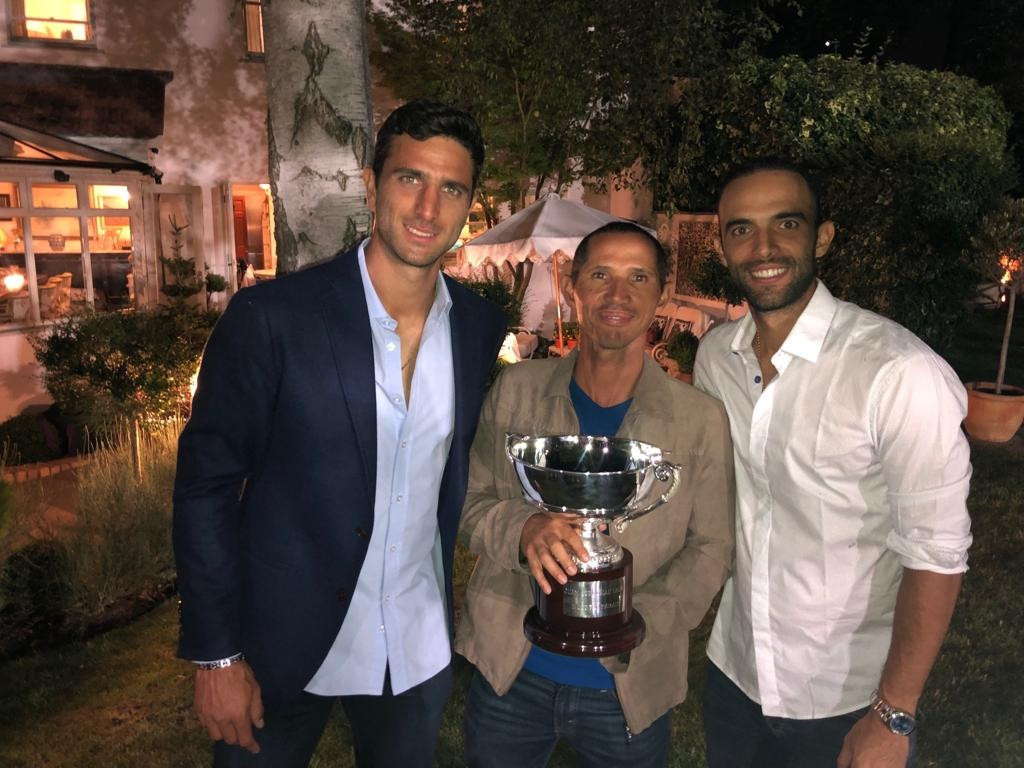 Left to right: Robert Farah, Jeff Coetzee, Juan Sebastian Cabal
Left to right: Robert Farah, Jeff Coetzee, Juan Sebastian Cabal
SportsEdTV: What is the difference in the level of doubles today on the futures tour, the challengers top 100, top 50, and on the very top?
Jeff: I think the mental aspect because if you take a guy that is six foot something really big, especially with the doubles game, besides the Grand Slams and the Davis Cup, you basically play no ad and you play a 10 point breaker. Whether you play the future or you play in a 4,000 event or ATP at the end of the year you're playing for. There's a lot more at stake. The pressure is a lot more, so basically becomes the main part, the mental side of things. Can you now produce it? Can you change from that guy that's so relaxed he's got nothing to lose? Suddenly it's a different story when you start having something to lose, but you can still produce it. Definitely, the mental and I could tell from my guys how they were the ones. No problem. They felt relaxed when they played the top guys and it's like I said, well, you know that one day when we get up there, you need to change that mentality. Take note of how you guys are, so every time you play them, when you are on top of the world, this is going to be you in reverse. Just remember that this is a journey we are doing. In the future, you have to remember that every single time you play somebody, whether it's a 250, 500 first round, they're going to come after you. Now you have become the hunted, you got to be ready all the time from the word go and you need to show it with your attitude in terms of from the first point, you've got to give them a fist pump, you've got to do something. Emotions that you want it not like, I'm No.1. Listen, I said no, you got to bring out your attitude but in a nice way.
SportsEdTV: That's great advice and Jeff, let me ask you now. Out of all the double stories out there, there is and not including the ones that you have coached, who would you say is your favorite?
Jeff: I always enjoyed the Bryans brothers, I played against them, I've coached against them, practice against them off-court great guys, on-court competitiveness is fun what they represent for the game. I just think they're unbelievable that that is great, just awesome. I've had a lot of clinics with him where he runs tournaments, where he does clinics. Unbelievable team. For me, if I have to pick one, it's probably the Bryans brothers, I have so much respect for them and what they've achieved, and even to this day, 41 and still be able to play at this level. It's very remarkable.
SportsEdTV: Absolutely. What about the player that you've coached, who do you think was the easiest to coach, and who do you think was the hardest to coach?
Jeff: The journey was tough but in terms of easy. I know it's tough to say, one, I would say to 1 boy, 1 girl, 1 from South Africa Raymond Klaasen again, reminds me of myself, easy to work with. I didn't have to ask anything extra. I have to sometimes tell him to stop and obviously, I'm passionate about South Africans, which is so much easier to work with, but what an unbelievable athlete, so professionals, great hard workers. Then same with Cara Black, again, I didn’t have to do anything. It was such a pleasure because Cara would ask me what we would do, not what do we do? How can I do this? How can I improve with this? And this is somebody that has won a lot more Grand Slams. In terms of difficulty, I would say the word is challenging with Soniya. Yes, Soniya challenges me, which I like. But I also let her know that look, this is what you need to do. I don't think you need to do that in this and you think that's it for the day. I said, if you want to be the best, you need to be able to do that. She challenged me, but I actually enjoyed that.
SportsEdTV: Nice, you mention Cara Black, I think most of us have seen the video of her volleying against the ball at remarkable speeds and I think she was doing one hundred reps. Is that video real? Have you seen her do that?
Jeff: I actually was. 16, 17, I was in Ghana and I heard about Cara Black, and I thought I was early in the morning going out to practice with my coach and then I saw a girl against the wall, a dad standing behind her and I didn't even see the video on YouTube. I saw it firsthand and I realized how good she was and I'm like, wow, this girl will be good one day. She actually won the championships that week at that age. I think she was 13 or something and beating all these 18-year-olds. I realized how good she was and then one day when I got to coach her, I actually played with her, I played with her brothers. It was such an honor because if you hear this story waking up early in the morning at 5:50, how tough her dad was for them, but, It was all good because they learned so much out of it, and I can see now when I see, Cara, sometimes coaching stuff and I can see the discipline is still there. But I mean, for me, it's just absolutely remarkable coming out of one family and what they've achieved.
SportsEdTV: How do you think doubles is evolving now, changing, from the times when you played to now and where you think it's heading?
Jeff: I think it's, you know, back then was a lot of skills, whereas today is just physical and I think if you can combine a bit of both. That's what I try to do to bring some of the old school, some of the current how they play with the physicality, some of the finessing. That's why I brought the chip, I tried to do a lot of mini tennis with my guys to bring sort of that healed aspect of it. A lot of different things, especially with Rob, Cabal has probably the best hands that I've seen, but sometimes just need to be smart and how he uses it with Rob. Rob actually was like a little kid who was like, why don't you see the dropship? And we never used it because he didn't have soft hands. We worked a lot on that over the years with all these little games we played. It was amazing how I could see how he evolved. He gets so excited even like right now, you know, where you eat something, and then it just sort of stares at me sometimes. What did you say? But how come you never said anything about my drop shot or how come you never said anything about that? And I'm like, Rob, you're going to hit another hundred of that or two hundred of that for me to say something. But I like the way you are thinking. Well done. I think it's definitely power, power, power, and I don't see anything change. I think the way the game is going, I think one just has to be smart in terms of what you want to do and what you want to achieve because there's definitely a way out there to chip and lob, chip and come in, I feel like it's a power game, but on second serves, if you can just be smart and bring something different because people are just so used to serving and staying back and especially if you play singles guys, they rip the ball, but I am a firm believer if you have good volley and you understand the basics of doubles and in master, the basics, the geometry of the court and you move as one, the court actually becomes a lot smaller and it becomes a lot tougher for that particular guy. That's why we do a lot of two on ones where I'm in a corner, two at the net and vice versa, two at the back, one in the corner. So, we make the court small and a lot of the stuff, I don't even use the allies. I make the court even smaller for them. By the time they get to a match, suddenly there's an extra little bit of space for them. We do a lot of those things. But I think you just have to be smart as a coach and go as the game goes. But also, don't forget some of the old school and see what's current.
SportsEdTV: We are covering so many great things with you from the No.1 team, Davis Cup, Olympics, your junior career. Now, there's a lot of excitement in South Africa because you're the director of tennis there for the country. Everybody's talking about it. The other night I'm talking to Colin Dowdeswell, the ATP Tour alumni head and is on the way to play in Monte Carlo at the club there, and the first thing you see, Jeff Coetzee. I want you to know there's a lot of excitement about what you're doing there, even getting noticed from there. What are the key things that you're thinking you want to implement? I know you said about getting people good at an earlier age, but what are you thinking about that and how are you enjoying that part of it now? That's a whole new dimension.
Jeff: Yeah, it's a completely different journey. It's another challenge for me in my career that I took on and I'm passionate and that's what I wanted to do. My main focus for the first few months is bringing everybody together. I've got the opportunity now with these zoom meetings I've done, we've had some very, very good people on the zoom meetings and it just brings everybody together. In terms of bringing the youngsters in with the parents, with the coaches, it's just so exciting. I can hear the people talking about tennis, but in terms of going forward, I've got to structure and play. And hopefully, everybody buys into it.
SportsEdTV: That is great. Well, thanks, Jeff for being with us today, and good luck.

